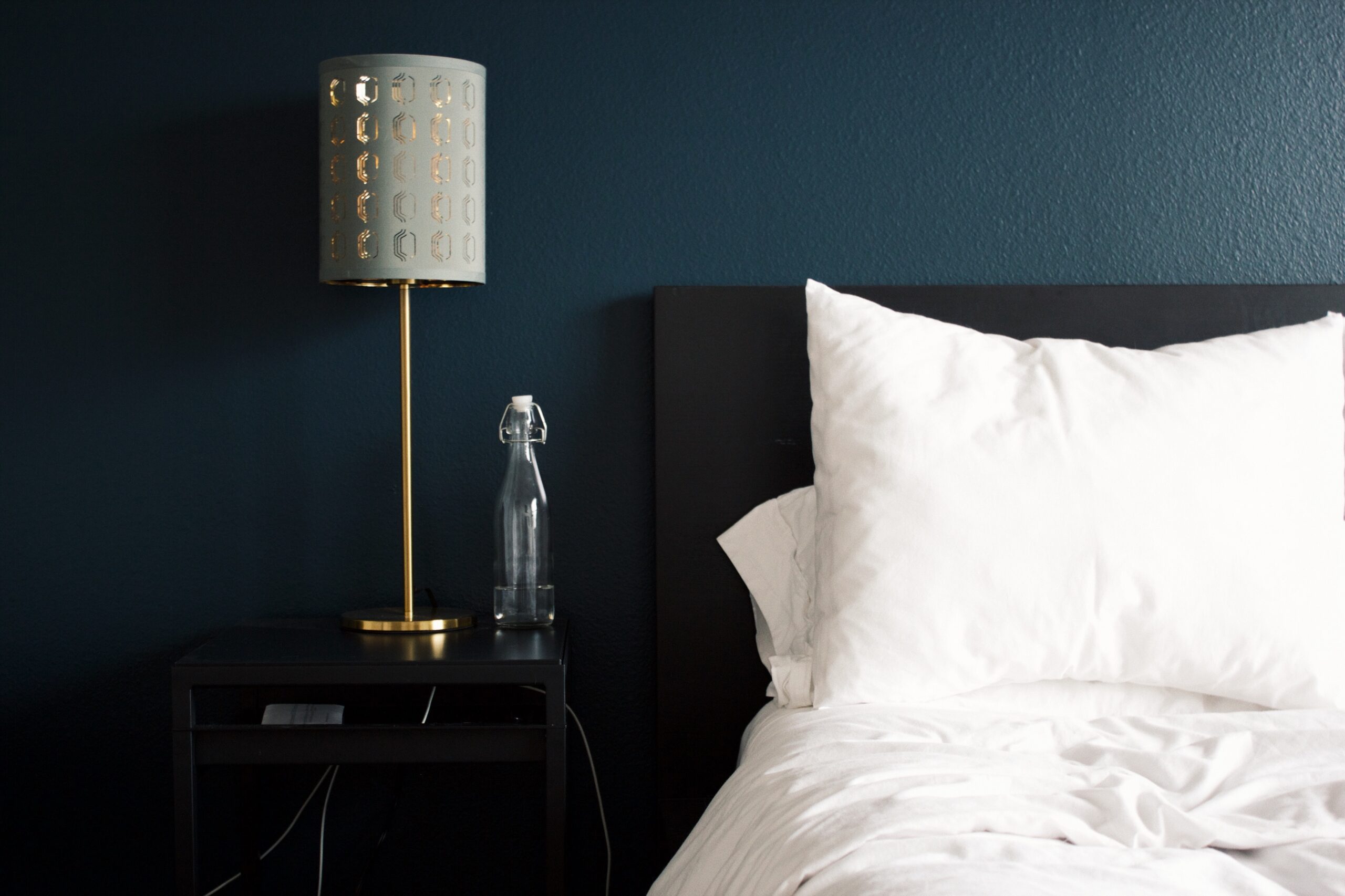
Managing Sleep Disturbances During Prostate Cancer Treatment
Prostate cancer is one of the most common cancers affecting men worldwide. While advancements in treatment have improved the prognosis for many patients, the journey through prostate cancer treatment is often fraught with various challenges, including sleep disturbances.
Sleep plays a critical role in overall well-being and healing, making it essential to address these disturbances during prostate cancer treatment. In this article, we will explore the common sleep disturbances experienced by prostate cancer patients and offer tailored strategies for addressing insomnia, fatigue, and other sleep-related challenges. By emphasizing the importance of prioritizing sleep as part of a holistic prostate cancer care plan, we can enhance the quality of life for those undergoing treatment.


Insomnia:
Insomnia is a complex sleep disorder characterized by persistent difficulty falling asleep, staying asleep, or waking up too early. For prostate cancer patients, insomnia can become a relentless companion throughout their treatment journey. The psychological burden of a cancer diagnosis, coupled with the uncertainty and anxiety about treatment outcomes, often creates a perfect storm for sleepless nights. Additionally, the medications used in prostate cancer treatment can have side effects that disrupt sleep. Hormonal therapy, for example, is known to contribute to insomnia in some patients. These medications can impact the body's hormonal balance, leading to hot flashes and night sweats, which further disturb sleep patterns. The consequences of insomnia extend beyond just feeling tired; it can result in irritability, mood swings, and impaired concentration. Over time, chronic insomnia can exacerbate other physical and emotional symptoms, making it crucial to address this sleep disturbance early in the treatment process.
Fatigue:
Fatigue is a common and debilitating symptom experienced by cancer patients, and it often goes hand in hand with sleep disturbances. Poor sleep quality and insufficient sleep duration can intensify the overwhelming sense of fatigue that prostate cancer patients may already be experiencing. Sleep is essential for the body to recover and regenerate. Without adequate rest, the immune system weakens, and the body struggles to repair tissues damaged by cancer treatments. Consequently, fatigue can become a vicious cycle – poor sleep leads to more significant fatigue, which in turn hinders the ability to engage in daily activities and maintain a sense of normalcy. This persistent fatigue can affect not only the patient but also their caregivers and loved ones, as it impacts the patient's ability to participate in family and social activities. Fatigue can also contribute to depression and a reduced quality of life, highlighting the importance of addressing sleep disturbances as part of the holistic cancer care plan.
Frequent Urination:
Prostate cancer and its treatments can significantly affect the urinary system, leading to increased frequency and urgency to urinate, especially at night. This phenomenon, known as nocturia, can be particularly disruptive to sleep. Nocturia can result from various factors, including an enlarged prostate, radiation therapy, or post-surgical changes in urinary function. Patients may find themselves waking up multiple times throughout the night to use the bathroom, making it difficult to achieve uninterrupted and restorative sleep. Beyond the immediate disruption of sleep, frequent urination can contribute to dehydration and a disrupted sleep-wake cycle, further compounding sleep disturbances. Managing nocturia is crucial not only for improving sleep but also for the overall well-being of prostate cancer patients.

Pain and Discomfort:
Prostate cancer treatment often involves surgeries, such as radical prostatectomy, or radiation therapy. These procedures can result in pain and discomfort, both in the short term and sometimes as lingering side effects.
Pain can interfere with a patient’s ability to find a comfortable sleeping position. Even slight discomfort can prevent individuals from settling into deep, restorative sleep, leading to interrupted and fragmented sleep patterns. Moreover, pain-related sleep disturbances can contribute to an increased perception of pain during waking hours, creating a vicious cycle of discomfort and sleep disruption.
Managing pain and discomfort is not only essential for improving sleep but also for promoting healing and recovery. Healthcare providers can offer various strategies and medications to alleviate pain, ultimately aiding in achieving more restful nights for prostate cancer patients.

Addressing Sleep Disturbances During Prostate Cancer Therapy
Addressing sleep disturbances during prostate cancer treatment is not just about feeling well-rested; it’s about supporting the body’s natural healing processes and improving the overall quality of life. Quality sleep plays a critical role in the body’s ability to repair damaged tissues, regulate hormones, and boost the immune system.
Sleep also aids in managing side effects and treatment-related symptoms. Patients who prioritize sleep are more likely to tolerate the physical and emotional challenges of cancer treatment, which can be demanding on the body and mind.
Furthermore, sleep has a profound impact on mental health. Chronic sleep disturbances can contribute to depression and anxiety, which can hinder the overall treatment process and decrease the patient’s quality of life. Prioritizing sleep can help maintain emotional well-being during a challenging time.
Establish a Sleep Routine:
Creating a structured sleep routine is a foundational step in managing sleep disturbances during prostate cancer treatment. Going to bed and waking up at consistent times each day helps synchronize the body’s internal clock, known as the circadian rhythm. This consistency can have a profound impact on improving sleep quality over time.
Patients should aim to maintain their sleep schedule even on weekends or days when they don’t have appointments or treatments. By doing so, they signal to their body when it’s time to sleep and when it’s time to wake up, promoting better sleep patterns.
Additionally, establishing a pre-sleep routine can signal the body that it’s time to wind down. Activities like reading a book, taking a warm bath, or practicing relaxation exercises can be incorporated into this routine to help prepare the body and mind for restful sleep.
Manage Anxiety and Stress:
Anxiety and stress are common emotional responses to a prostate cancer diagnosis and treatment. These heightened emotions can contribute to sleep disturbances by making it difficult for patients to relax and calm their minds.
Engaging in relaxation techniques can be immensely beneficial. Deep breathing exercises, meditation, and progressive muscle relaxation are effective methods for reducing anxiety and promoting a sense of calm. Patients can integrate these practices into their daily routine, particularly during the evening hours to prepare for sleep.
Seeking emotional support through counseling or participation in support groups can provide an outlet for patients to express their fears and concerns. Sharing experiences with others facing similar challenges can be therapeutic and can help reduce anxiety related to prostate cancer and its treatment.
Limit Screen Time:
The use of electronic devices such as smartphones, tablets, and computers before bedtime can interfere with sleep patterns. These devices emit blue light, which suppresses the production of melatonin, a hormone responsible for regulating sleep-wake cycles.
Prostate cancer patients should establish a screen-free period at least an hour before bedtime. During this time, they can engage in relaxing activities like reading a physical book, listening to soothing music, or practicing relaxation exercises. By reducing exposure to artificial light, they can promote the body’s natural production of melatonin and improve their ability to fall asleep.
Control Nocturia:
Managing nocturia, the frequent need to urinate at night, is critical for improving sleep quality for prostate cancer patients. To address this issue:
- Patients should limit their fluid intake in the evening hours, particularly closer to bedtime.
- Avoiding caffeine and alcohol before bedtime is essential, as these substances can increase urinary urgency.
- Consulting with a healthcare provider is advisable, as they can recommend medications or interventions to manage urinary symptoms, such as diuretics or bladder training techniques.
Addressing nocturia effectively can lead to fewer nighttime awakenings and better sleep continuity.
Exercise Regularly:
Incorporating regular physical activity into a daily routine can help alleviate fatigue and improve sleep quality. Exercise has been shown to promote better sleep by reducing anxiety, stress, and depression, all of which can contribute to sleep disturbances.
However, it’s essential to consult with a healthcare provider before starting any exercise regimen, especially during cancer treatment. Individual recommendations for the type and intensity of exercise may vary based on a patient’s specific medical condition and treatment plan. Therefore, personalized guidance is crucial to ensure safety and effectiveness.
Sleep-Enhancing Environment:
Creating a sleep-conducive environment is essential for improving sleep quality. Patients should pay attention to factors such as room temperature, mattress comfort, and the reduction of noise and light.
- Room Temperature: Keeping the bedroom at a comfortable temperature, typically slightly cooler than the rest of the house, can promote better sleep. Many people find that a cooler room facilitates falling asleep and staying asleep.
- Mattress and Bedding: An appropriate mattress and comfortable bedding are crucial for comfort and support. Patients should consider investing in a mattress that suits their preferences and supports their specific physical needs.
- Noise and Light: Minimizing external disruptions is essential. White noise machines, earplugs, or noise-cancelling headphones can help drown out noise disturbances. Additionally, blackout curtains can block out excess light, especially for patients who need to sleep during the day due to treatment schedules.
Medication and Therapy:
In cases where sleep disturbances persist or significantly impact a patient’s well-being, healthcare providers may explore therapeutic and medical interventions.
- Sleep Medications: Physicians may prescribe sleep medications for short-term use to help patients overcome acute insomnia or sleep disturbances. These medications should be used under medical supervision and only as recommended, as some can have side effects or lead to dependency.
- Cognitive-Behavioral Therapy for Insomnia (CBT-I): CBT-I is a structured and evidence-based approach to addressing insomnia. It involves identifying and modifying behaviors and thought patterns that contribute to sleep problems. A trained therapist can guide patients through CBT-I, helping them develop healthier sleep habits and address the underlying causes of insomnia.
These therapeutic and medical interventions should be discussed with a healthcare provider to determine the most suitable approach based on the patient’s specific sleep disturbances and overall treatment plan.
Incorporating these tailored strategies into their daily lives can empower prostate cancer patients to take proactive steps in managing sleep disturbances. By addressing sleep as an essential component of their cancer care, patients can improve their overall well-being, better tolerate treatment, and enhance their journey toward recovery and survivorship.
